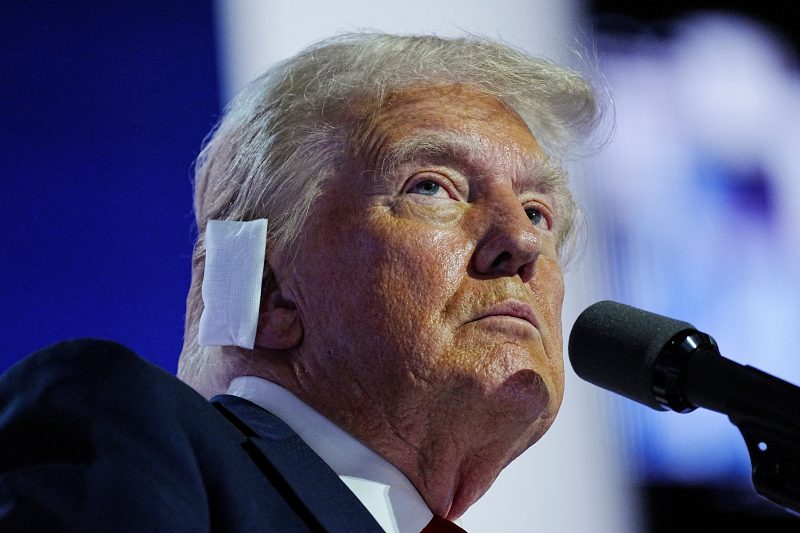On the fourth day of the 2024 Republican National Convention, former President Donald Trump made a series of assertions that spurred a tidal wave of fact-checking vigils in pursuit of accuracy. This article will highlight and verify numerous statements claimed by Trump, using factual sources and accurate data.
Firstly, Trump asserted that he had built 300 miles of border wall during his tenure. Homeland Security reports indicate this statement is not entirely accurate. While it’s true his administration oversaw rebuilding of pre-existing barriers, only about 45 miles of the wall were constructed in locations that didn’t have any prior structures. This implies that vast majority of the wall’s extension involves replacement or reinforcement of existing barriers, rather than establishment of new ones.
Trump went on to claim that our military was depleted, and we’ve rebuilt it. It’s critical to examine this statement in context. Truthfully, US military spending was indeed scaled down during the Obama administration due to the Budget Control Act of 2011, which imposed strict budget caps. Nevertheless, this trend began to reverse even before Trump took office. When Trump assumed presidency, he did increase military spending, though both its scope and effect are subject to debate. Major investments were made in readiness and modernization, but to term previous conditions as ‘depleted’ is clear overstatement.
Continuing his speech, Trump stated that he had achieved energy independence for the United States. While there has been substantial rise in US domestic oil production, particularly during the Obama administration, claiming absolute energy independence could be misleading. The U.S. Energy Information Administration (EIA) clarifies that while net import of energy has significantly reduced, U.S still imports oil. Furthermore, such independence can’t assure immunity from global energy price fluctuations, as oil prices are determined globally.
Trump’s claim that we passed VA Choice met the necessity of fact-checking since Trump signed the VA Mission Act of 2018 into law, which expanded the private-care program. However, it’s important to note that this law acts as a build upon the Veterans Choice program, a provision for veterans to seek private care under certain conditions, signed by President Obama in 2014. To attribute the inception of VA Choice to Trump would be inaccurate.
Lastly, Trump contended that the Paris climate accord would result in trillions and trillions of dollars of destruction to our country. Economic predictions about climate policy impacts are intrinsically complex and uncertain. The potential economic impact of the Paris Accord is still widely debated among economists. Some suggest potential negative short-term impacts due to transition costs, while others highlight the long-term economic benefits, including increased job opportunities in renewable energy sector, and reduction in healthcare costs due to improved air quality.
As these fact-checking efforts indicate, while some of the assurances made by Trump hold elements of truth, there are considerable instances of exaggeration, half-truths, and misleading implications. The public discourse benefits from such rigorous examination for accuracy, allowing for a more informed electorate.
